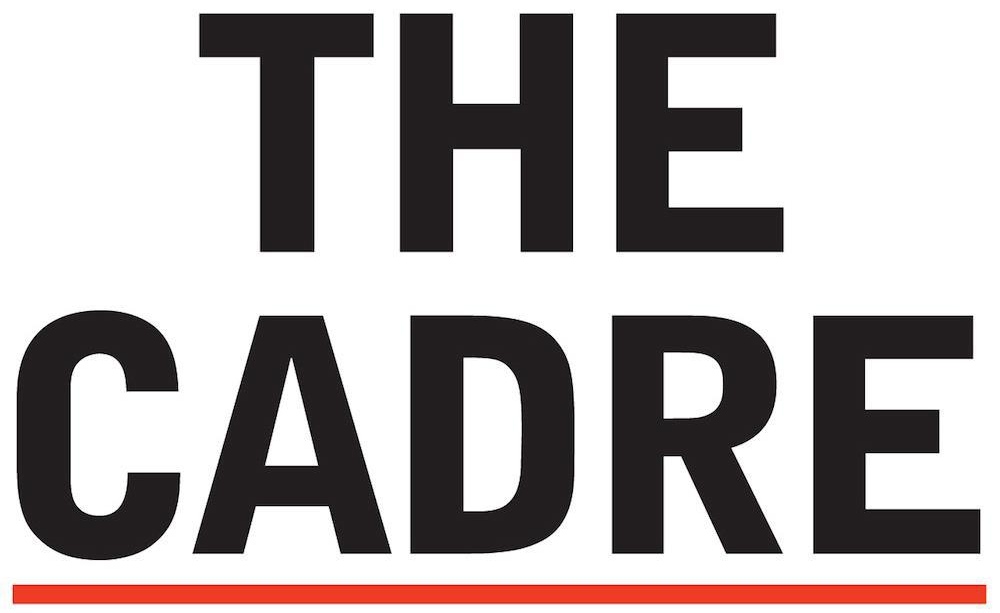On December 11th, The Cadre published “Letter to the Editor: Just the Facts, Ma’am.†The authors, Kathleen Mawhinney and Sarah MacDonald, identified their perceived issues with The Cadre’s 2017-2018 executive report cards and requested they be retracted.
The Cadre will not be issuing a retraction, first on the grounds that it does not meet the retraction criteria outlined in our editorial policy (which was approved by The Cadre’s Board of Directors prior to the publication of the report cards), and secondly because we dispute a number of assertions included in the request for the retraction.
One of Mawhinney and MacDonald’s concerns was that the report cards failed to “cite the authors’ names and clearly cite sources.†Because the report cards were a joint effort of The Cadre’s Editorial Board, we did not specifically assign credit to any one author, instead indicating in the rubric that the report cards were the work of the paper’s editors. However, we will add a credit to each report card indicating that the work was authored by the editorial board.
With respect to sources, The Cadre relied on interviews with each executive member, statements and documents provided at public SU events including Council meetings and their AGM, and follow-up discussions. We made an effort to hyperlink articles and other relevant publicly available information wherever possible to provide background information for readers of our assessments. A full citation of sources is uncommon in editorial work, as exemplified in the letter we received.
The authors of the letter expressed frustration that the report cards are “convoluted with opinion and criticizing remarks†and that they “read more like opinion pieces rather than unbiased, fact-based journalism.” Notwithstanding that unbiased journalism doesn’t exist, The Cadre stated in the piece preceding the release of the report cards that the report cards “solely reflect the opinions of the editors involved in the evaluation process.†They should be viewed as informed judgments based on fact and knowledge. Furthermore, each report card was categorized under the opinion section on our website. As such, we believe this criticism is unwarranted and we attribute it to a misunderstanding.
The Cadre disagrees with the authors’ assessment that the president deserved a B grade on a number of points. Sixteen committees? That is common, if not a little low, for SU presidents, not to mention some of the committees only meet a few times or meet infrequently. Gender-neutral washrooms? Although the authors said we had “nonsensically†implied the survey was a bad thing, some members of the LGBTQ+ community felt it was insensitive to conduct a survey that effectively took their right to access washrooms they feel comfortable using and turned it into a question of public opinion. Menstrual products in washrooms? While the authors paint it as a fait accompli, the reality is that at the time of the interview, there was no indication that dispensers had been installed and, to our knowledge, that remains the case.
The authors provide further claim that the other roles of the president have been performed “more than adequately.†Upon closer inspection, that claim is debatable if not inaccurate.
Liaising with stakeholders outside of UPEI? No evidence was provided in support of this claim. The Cadre had already highlighted minimal engagement with the SU’s primary national advocacy organization as well as the president’s lack of visibility when it came to provincial government advocacy, both of which fall short of the standards set by predecessors.
Implementing new initiatives as needed? We wrote about the new initiatives we were given by Ahmed; we apologize we weren’t given more to write about. Ensuring the sustainability of the SU structure? We’re not sure where this is outlined as a responsibility nor what it even means. Maintaining relationships with partner organizations such as Holland College? We commend the reversal of the decision to suppress the work of Holland College student journalists (although to be fair, it was someone else who successfully argued for the reversal).
Being involved in committees? In addition to the high number of committees being an expected part of the job, we’ve already reported on a lack of answers and the need for others to answer questions on issues the president is supposedly working to address in committee. Managing internal affairs and issues in the SU and providing leadership to the SU and to students? Ask around; there are plenty of people who’ll speak to you off-the-record.
Further scrutiny is invited to the assessment when it is noted that one of the authors’ siblings works directly under the SU president and was implicated in a recent investigative journalism piece by The Cadre. The authors made no effort to disclose this perceived conflict of interest. While it is not our place to divine motives behind this omission, it is worth noting that some readers might have left with a vastly different opinion of the letter if the disclosure had been made.
Requesting the retraction of executive report cards based on unsubstantiated claims that The Cadre misrepresented facts and because one does not agree with the final product is a bit extreme and does not lend itself to an environment of accountability on campus. We consider it a very serious allegation when the authors accuse us of “misrepresenting facts and writing mean-spirited sensationalist attacks.†While we accept some of the constructive criticism provided by the authors, we cannot accept unfounded criticism which wrongfully undermines public confidence in our content.
The Cadre holds a small frustration that it has become the subject of criticism for attempting an open assessment of executives while the Student Union continues to avoid any scrutiny despite its executive evaluation questions and results remaining entirely confidential. Even the evaluation reports submitted by the executives, which the SU’s bylaws require to be made public, have not been made available.
If the SU’s evaluation process was open and transparent, perhaps there would not have been a need to publish executive report cards.
We guess we’ll never know.
By: The Cadre Editorial Board
